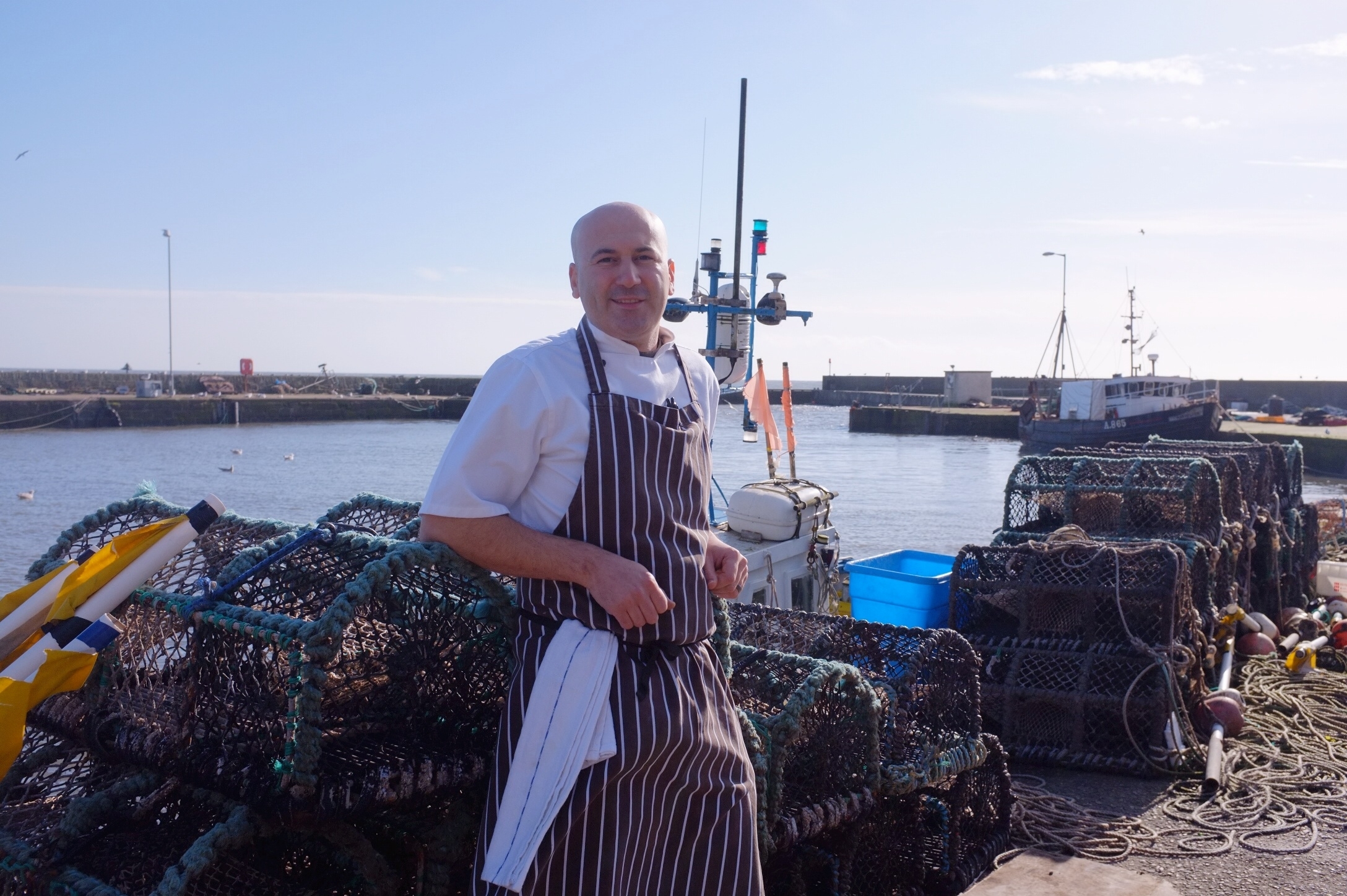A leading advocate for locally-sourced food has criticised the lack of affordable high welfare chickens available to the restaurant business – as supermarkets buy the bulk of them in Scotland.
Alex Grahame, who owns Hornblowers in Gourdon with his wife Ruth, said he had been searching for a quality reliable and certified supplier for poultry for about two years but could not find one.
He said the problem was extremely frustrating as the restaurant is committed to 100% Scottish sourcing for all of its fish and meat which it would preferably like to be organically or free range reared.
Mr Grahame said: “We are proud advocates of the fantastic bounty of fresh produce available in the north-east and are more than delighted to tell customers where we source our ingredients.
“Our fresh fish and shellfish comes from the fishermen at Gourdon or Peterhead so it is literally the catch of the day, our potatoes are sourced from a potato merchant in Aberdeen and even the salt you put on your chips is from the Hebridean Sea Salt company.”
Other locally-sourced produce served up at the restaurant includes smoked haddock and salmon from a smokehouse based in Gourdon, fresh meat from The Store at Foveran, and ice cream from Mackies.
“The challenge we struggle with is that we can’t source affordable high welfare chickens in the face of the large supermarkets as they seem to have the supply chain all tied up,” said Mr Grahame.
“Every time when we hear of another farmer who might possibly be a supplier, we inevitably end up disappointed as they have an exclusive deal with one of the supermarket chains.
“It’s very frustrating for us as we know there are affordable high welfare chickens out there but we just can’t get to them with the supermarkets blocking us. If there is a high welfare producer out there who is happy to work with us, then we’d be delighted to hear from them.”
Soil Association estimates suggest there are three main organic chicken producers in Scotland, each producing around 2,000 birds a week, all of which are sold to supermarkets, mainly Tesco and Sainsbury’s.
Sustainable Restaurant Association managing director Mark Linehan said: “We have for some time been aware of a shortage of a reliable supply of affordable higher welfare chicken in the hospitality and foodservice sector across the UK.
“In 2013, we hosted a roundtable discussion with a number of the UK’s leading restaurant groups as well as representatives from the leading certification schemes and Compassion in World Farming, to understand the barriers restaurants face when trying to source higher welfare chicken.
“We are continuing that conversation in the hope that we can help find a solution so that consumers who want to eat higher welfare chicken when dining out can do so.”
Philip Hopley, chairman of the Scottish Chicken Growers Association, said he understood the frustration of restauranteurs.
“We’re very keen to promote the marketplace for organic chickens and we’re despondent to hear restauranteurs cannot get these types of birds,” said Mr Hopley.
“Chicken prices are quite specialised and they have to be priced through the producers. There is little government support that I’m aware of for farmers who want to change to produce these types of birds – any costs have to be borne by the farmer.
“The issue with organic chicken is particularly due to the cost of producing and processing them which then makes the marketplace difficult for pricing.”
A spokeswoman for NFU Scotland agreed it was an annoying situation for restaurant owners.
She said: “It’s a regrettable situation and just highlights that we need additional processing facilities in Scotland.”
